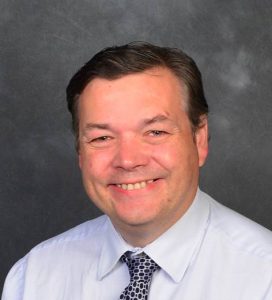David Herrington, of the national Futures Scanning Group, has worked as an analyst for both policing and health services. His work gives a unique perspective about the lack of, yet need for, more holistic data to better inform public service delivery- today and tomorrow.

Here we take a look at David’s work and and the fascinating world of Futures Scanning. David has over Over 20 years’ experience in strategic management (MCIM), research, project and programme management (APM trained) and is an Evidence Based Policing Champion for the College of Policing. David has helped support the NPCC, led by Chief Constable Sarah Thornton, in UK Government consultations on futures working, see:-http://www.npcc.police.uk/documents/NPCC%20Submission%20Policing%20For%20The%20Future%20160217.pdf
As the national Police Service project makes strides in understanding and attempting to tackle “demand”, it’s timely to reflect on how the public see police demand, comparing this to how public sector partners engage the Service in practice, with a view to suggesting areas for shared improvement going forward.
Working together?
It might be expected that a closer consultation relationship between the NHS and Policing would have been built in for all major change given a common interest in protecting the vulnerable. Ongoing consultations have not been instructed to include policing as a specific partner and it is left to experienced programme directors and engagement practitioners to bring agencies together. A lack of holistic data is the result.
The resulting picture is not as supportive of either agency as it should be. Consequently, the lack of shared recognition means resources are not deployed to protect the most people, and local solutions are sub-optimal: More police resources are tied up with mental health patients. Other planned resources, including Approved Mental Health Professionals, are not recruited enough to meet the demand from a care perspective. Not enough community crisis centres exist to provide alternative places of safety, and there is not enough signposting or outreach services to support people in their own homes. In short, the lack of connection brings poorer public services.
The ability to put onto the table demand information on a topic of common interest and collaborated practice gives all partners the best chance of coordinating demand and resources to address the current and future threats. By applying futures techniques to common problems, threats that are not so obvious will emerge, and these can be considered over different time horizons as part of a shared strategic vision and shared medium-term financial strategy: surely a key factor in joint demand management.
The challenge for government is twofold: Firstly, create conditions using Futures and scenario planning to build a common understanding of the external, emerging threat environment, and the demand for services it will create for the emergency services. Secondly, ensure application of a core principle from the Equality Act 2010 – promoting equality of opportunity – by giving a clear mandate for consultation between the Police, Fire and NHS on these overlapping issues, rather than leaving it to local practice.
The challenge for Policing – and NHS – leaders is, firstly, to make sense of the external environment rather than choosing to ignore it or getting a biased view. Their second task is to get managers and strategic teams to prepare adequately for the issues, so the operating environment can respond to upcoming changes in concert with others – considered a “systems thinking approach” by some (and often where people start to look at problems). The third task for leaders is to set the right tone for the organisation which in turn helps steer culture and energy.
Futures Scanning
Any policy made today could have impacts for years to come, so planing ahead means considering potential scenarios: ‘look before you leap’! It’s about trying to best navigate complexity in uncertain environments. The UK Government has an Office for Science to support looking ahead, collecting and analysing data from academia, industry and government, to apply ‘Futures’ techniques to explore future opportunities, challenges and uncertainty. ‘Futures’ refers to structured approaches to exploring possible and preferable futures, focussing on areas of uncertainty, underlying drivers, opportunities and challenges. Whereas ‘Foresight’ refers to the process of conducting Futures work and ‘Horizon Scanning’ is a specific technique.
Applying Futures techniques helps policy-makers anticipate and learn about future opportunities and challenges, helps generate visions to explore the actions they can take to shape the future, and engage relevant stakeholders to test and implement more resilient policies. This helps to challenge old ways of thinking and helps avoid unanticipated surprises!
The Government Office for Science offers:
- Foresight exercises that build an evidence base relevant to policy priorities, in collaboration with government departments and agencies
- resources to support trend analysis and forward-look exercises in the Futures Toolkit


Comments